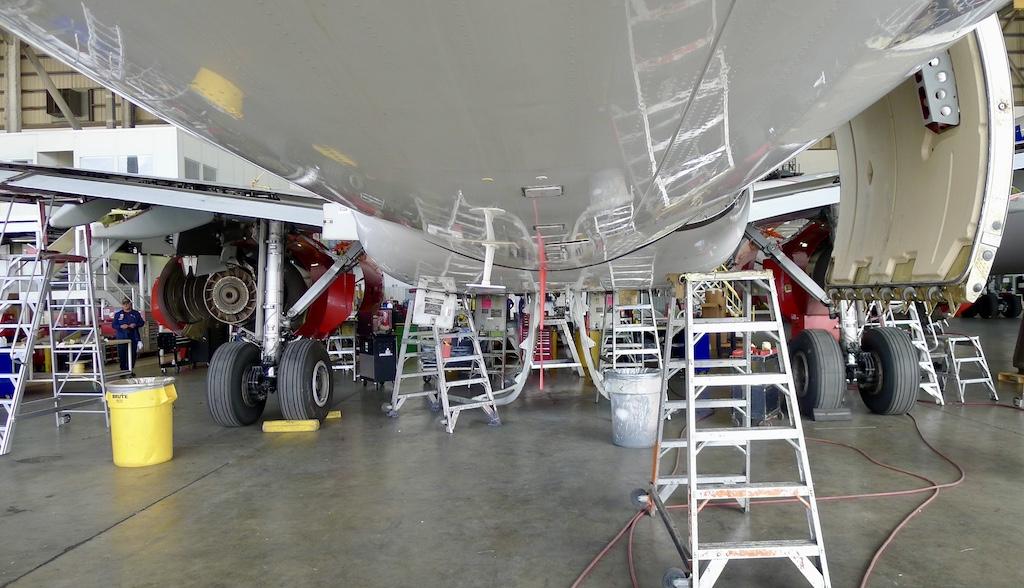
WASHINGTON--U.S.-based repair stations that support operators in the UK are well-positioned to see few if any disruptions from the upcoming transition to needing a UK Civil Aviation Authority (CAA) Part 145 approval starting Jan. 1, 2025.
"I think we're quite well placed in the commercial aviation field," UK CAA Head of Airworthiness Policy and Rulemaking Neil Williams told Aviation Week in a late-November interview. "I think our airlines and big MRO shops have been speaking to their supply chains in the U.S and sorting things out very, very well."
As part of the UK’s withdrawal from the European Union (EU), U.S. repair stations are required to obtain UK CAA Part 145 approvals by Jan. 1, 2025. The CAA approval replaces the UK's recognition of a European Union Aviation Safety Agency (EASA) certificate, which U.S. and UK officials agreed to use as part of a post-Brexit bilateral and related transition period.
The U.S. and UK opened the application period in January 2023. As of late November, more than 700 U.S. entities had applied, with 300 receiving their approvals. Williams said more were expected in the year's final weeks.
"There's quite a lot arriving in our in-trays at the moment to process, because the FAA are getting to the end of doing their evaluation of the supplements that the organizations have to produce," Williams said. "We're working hard to make sure that everybody who's completed the FAA side of the process knows exactly what they're able to do at the start of [2025]."
The UK is home to about 200 repair stations that hold U.S. FAA approval--a figure that has been fairly consistent in recent years, Williams said. Just how many U.S.-based shops will seek UK approval is unclear. EASA issued about 1,500 Part 145 approvals to shops based in the U.S., but not all of these have UK-based customers.
"I'd expect to see a few more, but it's really hard to say, because we don't have the data that says, 'We're short in this area, or short in another,'" Williams said. "And of course, things do change in this industry. Sometimes slowly, but they do change."
With just a few weeks left until the deadline, new applications are not likely to see approvals by January. But Williams said shops that have not yet sent in their paperwork should press on.
"We're still encouraging anybody who hasn't applied to come forward and apply if they want to do business with the UK, or they have customers in the UK that they want to continue to support," Williams said. "We want to continue to build those [approval] numbers, not make it too onerous to be able to get an approval, and then let the market decide where they want to place their business."
While most commercial-operator needs have been addressed through approvals to date, Williams expects a few gaps in general aviation.
"We might have a few companies that say, 'Oh, we can't get this actuator anymore or this [part] because the company hasn't applied for approval,'" he said, adding that the agency is prepared to work with affected stakeholders. "There are some workarounds in our system that shouldn't disrupt small GA operators for being able to accept parts from the U.S."
Williams also stressed that the deadline does not affect already-issued parts or maintenance approvals.
"Anything that's released up to the end of [2024] out of particularly component maintenance organizations, remains acceptable in our system, even after that date," Williams said. "So if the part is held in stock or it's on a shelf, it's still okay to install it on a UK-registered aircraft because it was released under the arrangements are in place today. But if the part was leaving the workshop in January [2025], and the organization doesn't have a UK approval, then obviously that's no longer acceptable."





